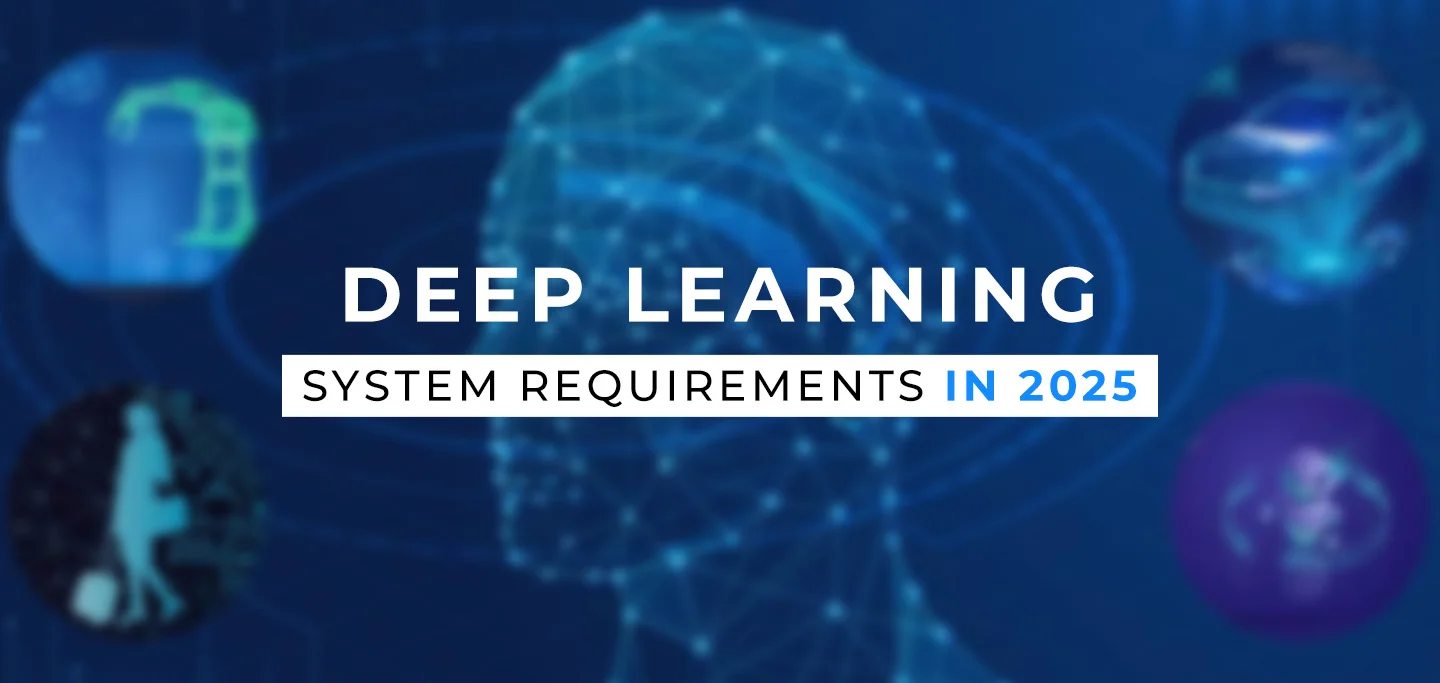
System Requirements for Deep Learning in 2025
January 7, 2025
Share this:
Deep learning, a subset of machine learning, it has ability to handle complex data and perform intricate tasks such as image and speech recognition, natural language processing, and more. To effectively develop, train, and deploy deep learning models, it's essential to understand the system requirements that can facilitate these tasks and requires a powerful deep learning workstation.
Hardware Requirements for Deep Learning
CPU:
- Intel i7/i9 or AMD Ryzen 7/9 is recommended. A higher number of cores helps in parallel processing of data and training algorithms.
GPU:
- NVIDIA GPUs: CUDA-compatible NVIDIA GPUs are most commonly used in deep learning. Popular models include the NVIDIA RTX 30-series (e.g., RTX 3080, RTX 3090) and the A100 and H100 GPUs designed for data centers.
- VRAM: Sufficient Video RAM (VRAM) is crucial for handling large models and datasets. A minimum of 8 GB VRAM is recommended, but 16 GB or more is preferred for more complex tasks.
- Tensor Cores: Modern NVIDIA GPUs come with Tensor Cores that accelerate matrix multiplications, which are fundamental to deep learning operations.
Memory (RAM)
- A minimum of 16 GB of RAM is recommended for basic tasks. For more intensive applications and large-scale models, 32 GB or more may be necessary.
Storage
- SSD vs. HDD: Solid-State Drives (SSD) are preferred over Hard Disk Drives (HDD) due to their faster read/write speeds, which significantly reduce data loading times.
- Capacity: Storage capacity should be sufficient to handle large datasets and model files. At least 1 TB of SSD storage is recommended for most deep learning tasks.
Network
- A fast Ethernet connection (e.g., 1 Gbps or higher) or InfiniBand is recommended for large-scale distributed training.
Software Requirements
Operating System
- Linux: Often preferred for deep learning due to its compatibility with many frameworks and tools. Popular distributions include Ubuntu and CentOS.
- Windows: Also supported by many deep learning frameworks, but Linux tends to offer better support for certain libraries and tools.
- macOS: Less commonly used for deep learning but can be suitable for smaller-scale tasks.
Deep Learning Frameworks
- TensorFlow: Developed by Google, widely used for its comprehensive tools and libraries.
- PyTorch: Developed by Facebook, known for its dynamic computational graph and ease of use.
- Keras: An API running on top of TensorFlow, providing a user-friendly interface.
- MXNet, Caffe, and Theano: Other frameworks with specific strengths and use cases.
Explore All AI Workstation at proxpc.com
Read More Related Topics:
Share this:









